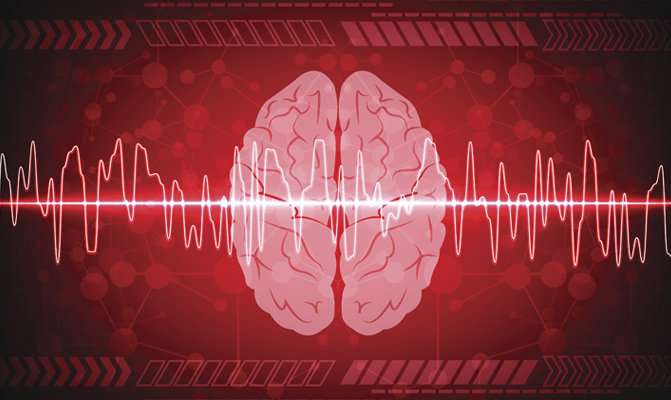Study backs up connection between atrial fibrillation and dementia

One of the longest and most comprehensive studies to date has found more evidence that people diagnosed with a type of rapid or irregular heartbeat called atrial fibrillation may be at greater risk for cognitive decline and dementia.
The new study can't say whether the association is more than a correlation, and there is no evidence showing atrial fibrillation, or AFib, is an actual cause of cognitive decline or dementia.
"That is the crux of the matter," said Dr. Lin Yee Chen, a cardiac electrophysiologist and associate professor at the University of Minnesota Medical School in Minneapolis who led the study. "The short answer is we don't know. It is too early to say that atrial fibrillation directly causes cognitive decline."
The new findings, published Wednesday in the Journal of the American Heart Association, come from data collected on 12,500 women and men from Maryland, Minnesota, Mississippi and North Carolina enrolled in the Atherosclerosis Risk in Communities study. More than half the participants were women and about a quarter were African-American.
The study participants were followed for 20 years. At three points during the study, they underwent cognitive testing.
Overall, 2,106 of the study participants were diagnosed with AFib and 1,157 were diagnosed with dementia. After accounting for people who had suffered a stroke, individuals with AFib had a 23 percent higher risk of developing dementia. They also had a greater decline in their cognitive score than those who did not have the heart condition.
Some previous, smaller studies also found an association between AFib and dementia; others did not.
Dr. Philip B. Gorelick, medical director of the Hauenstein Neuroscience Center at Saint Mary's Health Care in Grand Rapids, Michigan, who was not involved with the study, said while the new findings show a relationship, "more work needs to be done to precisely elucidate the mechanism or mechanisms that underlie the association."
Gorelick, lead author of a recent American Heart Association presidential advisory on brain health, said possible biological reasons for why AFib increases the risk of cognitive decline or dementia are that patients can develop brain atrophy or a slow or fast heart rate, which can affect blood flow to the brain.
It's also possible, said Chen, "that there could be confounding"—shared risk factors for both AFib and dementia. "For example, we know that people with hypertension, diabetes or coronary heart disease are at high risk for cognitive decline and dementia and for atrial fibrillation," he said.
Another hypothesis that needs to be investigated, Chen said, is whether "some other factor that is closely related to AFib, such as [an abnormal upper left heart chamber], may be the underlying mechanism for cognitive decline or dementia."
More than 2.7 million Americans are living with AFib. The most common symptom is a quivering heartbeat that occurs when the two upper chambers of the heart (the atria) do not beat in sync with the two lower chambers of the heart (the ventricles).
Some people have no symptoms. Others experience heart palpitations, weakness, fatigue, shortness of breath and anxiety. The symptoms can come and go, or they may be constant and require treatment.
AFib itself isn't typically life-threatening. However, studies have found that, left untreated for stroke prevention, women and men with the heart problem are five times more likely to have a stroke than those who haven't been diagnosed with AFib. The condition is often treated with anticoagulants to prevent stroke.
The new study didn't look at whether patients taking anticoagulants are less likely to be diagnosed with dementia. But Gorelick said "one may speculate that early detection of atrial fibrillation and effective treatment with oral anticoagulants … might reduce the risk of cognitive decline or dementia."
More information: Association of Atrial Fibrillation With Cognitive Decline and Dementia Over 20 Years: The ARIC‐NCS (Atherosclerosis Risk in Communities Neurocognitive Study). Journal of the American Heart Association. doi.org/10.1161/JAHA.117.007301

















